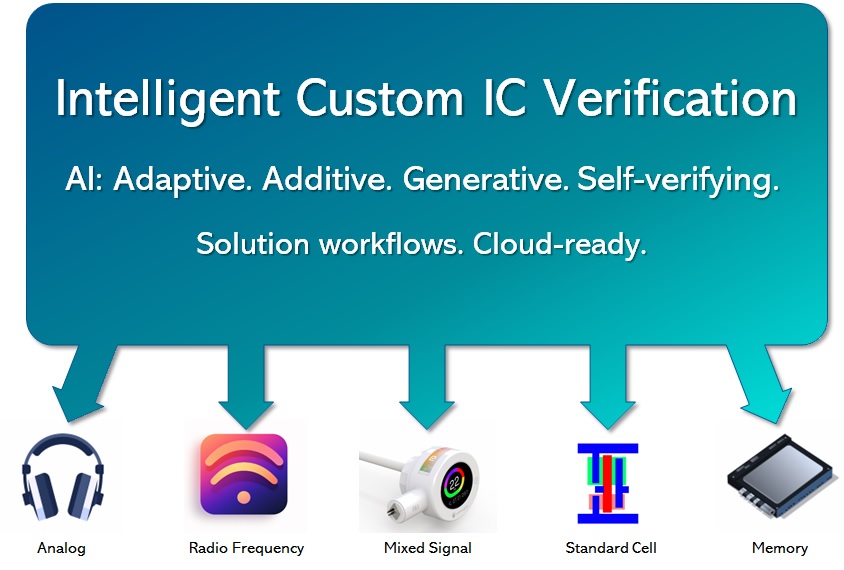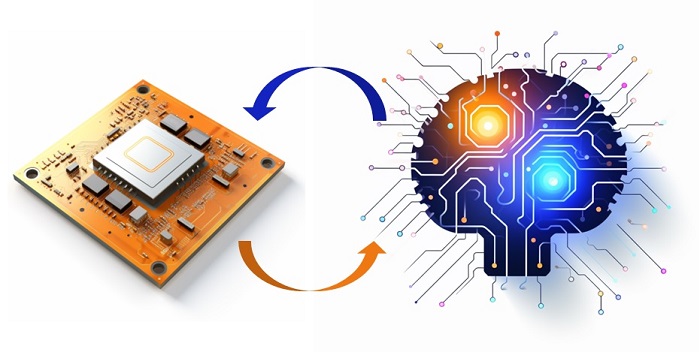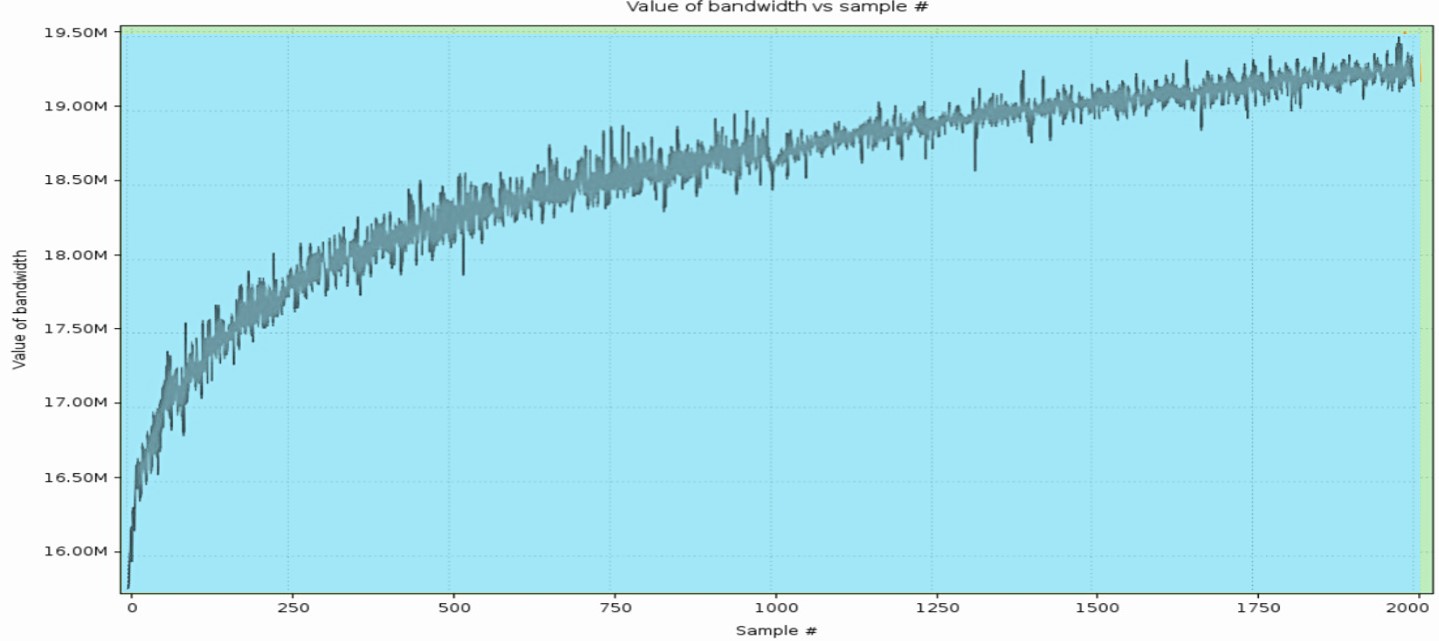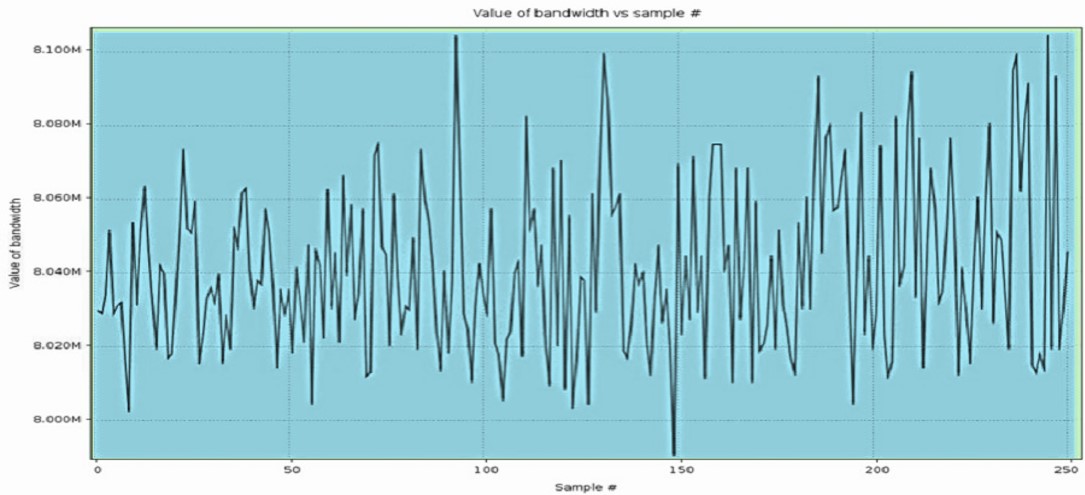Intelligent Custom IC Verification: 6 Fundamentals for Success
By Amit Gupta, Vice President & General Manager, Siemens EDA
I. Overview
Custom integrated circuits (ICs) span analog, RF, mixed signal, standard cell, memory, and IP designs; from smartphone to IoT to artificial intelligence (AI) chips, these components power our modern world, enabling innovation across industries.
Intelligent custom IC verification is revolutionizing the way our industry verifies the next generation of custom ICs, ensuring that they meet stringent power, performance, area, and yield targets within tight project windows.
I will cover six fundamental properties of intelligent custom IC verification that deliver orders-of-magnitude speedups and productivity improvements to engineering teams.
II. What is Intelligent Custom IC Verification?
Intelligent custom IC verification leverages artificial intelligence, data analytics, and visualization to enhance engineering efficiency and accuracy in verifying custom integrated circuit functional correctness, performance, and reliability across all process, voltage, and temperature operating conditions.
AI-powered verification platforms utilize adaptive learning with self-verification, additive AI, and generative AI-based assistive technologies to dramatically reduce simulation time, prevent overdesign, and enable designers to quickly identify and address any issues before the IC goes into production.

III. Intelligent Custom IC Verification: 6 Fundamental Properties for Success
III-1. Adaptive AI Increases Accuracy & Speed

The first property is adaptive artificial intelligence.
Adaptive AI builds custom predictive AI models during simulation runs, learning on the customer’s own data, including circuits, measurements, PDK’s. With this method, the data stays secure at the company’s site.
Adaptive AI enables custom IC designers to achieve 10X+ speedups while maintaining full SPICE accuracy.
III-2. Additive Learning Saves Simulation Time, Improves Results
The second property is additive learning. Additive learning technology leverages the AI models and data created from previous designs, automatically reusing and building on the models whenever possible.
Additive learning saves AI model training time and gives custom IC design engineers an additional 10X+ speedup while maintaining full SPICE accuracy.

Additive learning – Derivative custom IC designs or changes
III-3. Generative AI-Based Assistive Technology Accelerates Design Creation
The third property is generative-AI-based assistive technology, which goes beyond verification to help designers create new designs or Liberty models based on their existing data.
Generative AI-based assistive technology can improve productivity by 10X, helping designers improve power, performance, and area, while reducing design iterations and overdesign.

III-4. Design teams & AI algorithms need verifiable results
Fundamental property number four is verifiability of the AI-based results.
In electronic design automation applications, it is critical that both the design teams & AI algorithms can easily verify the correctness of results.
One effective mechanism is AI self-verification, where the AI automatically acquires more data for training as needed to achieve accuracy, and then displays the model convergence to give designers confidence in the results.

Convergent results verify accuracy

Non-convergent results show inaccuracy
III-5. Intelligent custom IC verification solution workflows ensure coverage & completeness
The fifth fundamental property is providing full solution workflows. Application workflows can include library IP verification, automotive, advanced node design, and 3D IC design.
Solution workflows enable designers to more efficiently achieve accurate power, performance, area, and yield targets for their specific application with significantly reduced time and effort.

III-6. Cloud-ready environments maximize scalability

The sixth fundamental property is cloud readiness.
Cloud-ready technology can provide on-demand access to 1000s of compute nodes, slashing turnaround time during peak demand, then scale back during low-demand periods.
About Siemens EDA Intelligent Custom IC Verification Platform
Siemen EDA’s Intelligent custom IC verification platform has all six properties, delivering orders-of magnitude speed and productivity improvements to engineering teams.
Our platform includes: Solido Design Environment, Solido Characterization Suite, Solido IP Validation, AFS SPICE, Fast SPICE and Symphony mixed-signal products.
Related Articles:

ABOUT THE AUTHOR
Amit Gupta is Vice President and General Manager of the Custom IC Verification Division of Siemens EDA. Gupta is leading the growth of artificial intelligence-powered variation-aware custom IC design, library characterization, IP validation and simulation products.
In 2005, Gupta founded and became President & CEO of Solido which was acquired by Siemens in 2017. In 1999, Gupta founded and became President & CEO of Analog Design Automation which was acquired by Synopsys in 2004.
Gupta graduated with degrees in Electrical Engineering and Computer Science with Great Distinction from the University of Saskatchewan. He was awarded the President’s First and Best scholarship, the best engineering design project award, and outstanding alumni award for significant accomplishments since graduation.
